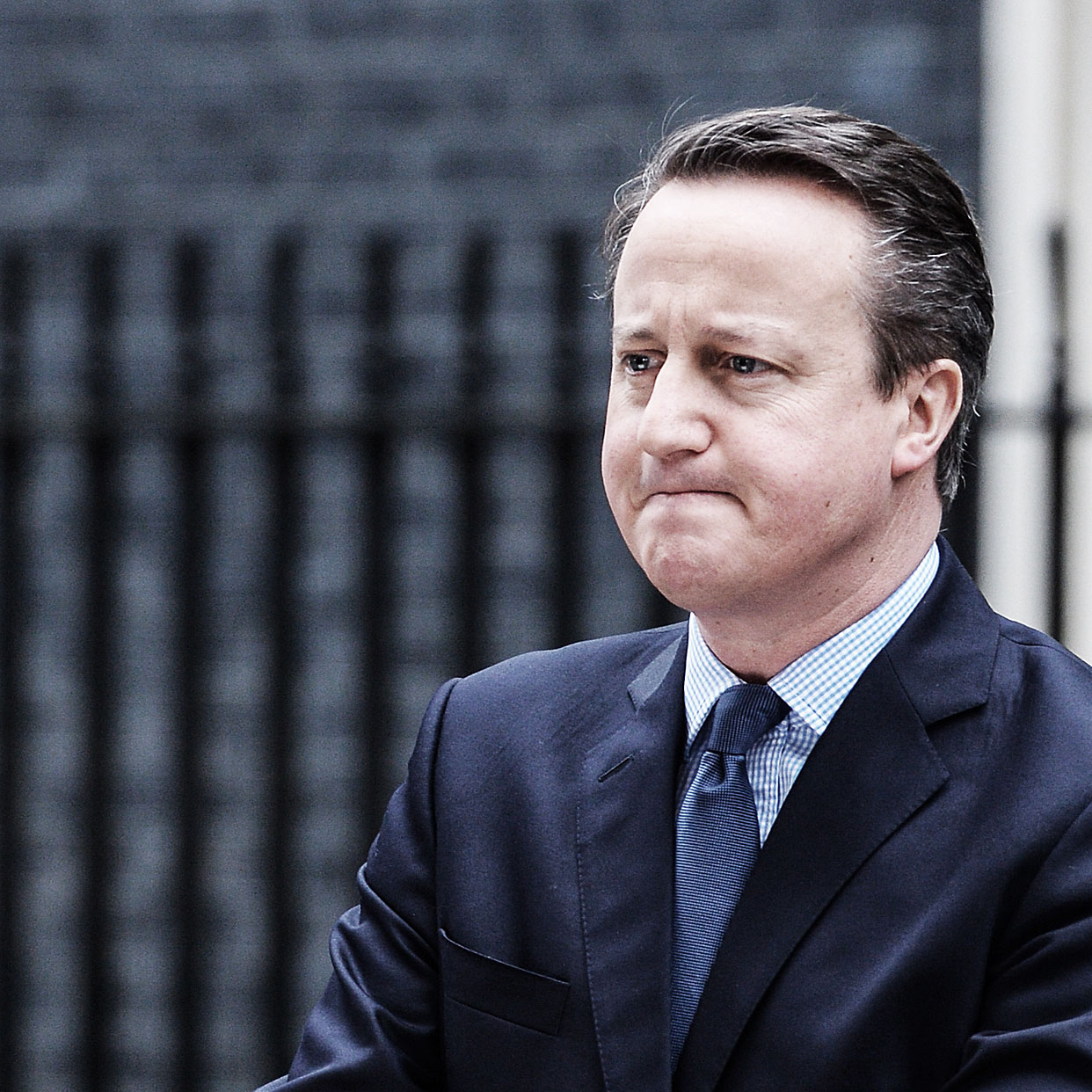Cameron steps in after Barclays blocks trade deals with Iran
Banks with US operations worry about potential penalties while 'primary sanctions' remain in place

A free daily email with the biggest news stories of the day – and the best features from TheWeek.com
You are now subscribed
Your newsletter sign-up was successful
David Cameron has stepped in to directly challenge Barclays - and bring pressure on other banks - over its refusal to facilitate trade deals with companies in Iran despite the lifting of international sanctions.
One business near Cameron's own Oxfordshire constituency, lubricants firm Molyslip Atlantic, was unable to complete a £14,000 contract with an Iranian distributor after the bank refused to process the payment, reports The Times.
In response, the Prime Minister last week wrote to Barclays chief executive Jes Staley asking for a clarification on what appears to be a breach of United Nations and UK policy.
The Week
Escape your echo chamber. Get the facts behind the news, plus analysis from multiple perspectives.

Sign up for The Week's Free Newsletters
From our morning news briefing to a weekly Good News Newsletter, get the best of The Week delivered directly to your inbox.
From our morning news briefing to a weekly Good News Newsletter, get the best of The Week delivered directly to your inbox.
Staley responded that as the US has retained its "primary sanctions" and the bank has operations there, it is "required to continue to restrict business activity with Iran". Most of the other large UK banks are thought likely to adopt a similar line.
Royal Bank of Scotland is particularly coming under pressure over its approach after Cameron's intervention, according to the newspaper. It would be embarrassing if the majority taxpayer-owned bank defied government wishes – but RBS is also sensitive to the US's position after a $100m (£69.7m) regulatory action over dealings in Iran, Cuba, Myanmar and Sudan in 2013.
The crippling regime of sanctions that had effectively barred Iran from international export and banking markets were lifted in January, after the country struck a contentious deal with the US to limit its nuclear ambitions.
The assumption was that while the agreement would be beneficial for Iran, especially as it could begin to monetise its massive oil reserves and repair its battered economy, it would also open up a huge new market and be a big boon for exporters around the world, including in the UK.
A free daily email with the biggest news stories of the day – and the best features from TheWeek.com
UK government ministers certainly take that view. In May, Business Secretary Sajid Javid will lead a British trade delegation to Tehran to promote the opportunity presented by the re-opening of a market of 80 million consumers.
The US has had primary sanctions in place since the Iranian revolution in 1979, which bar its companies and citizens from trading with the country. It imposed "secondary" sanctions affecting non-US citizens between 2009 and 2012 and it is these it has lifted – but the BBC reckons the result is a "grey area" for banks with a US presence.
-
 6 of the world’s most accessible destinations
6 of the world’s most accessible destinationsThe Week Recommends Experience all of Berlin, Singapore and Sydney
-
 How the FCC’s ‘equal time’ rule works
How the FCC’s ‘equal time’ rule worksIn the Spotlight The law is at the heart of the Colbert-CBS conflict
-
 What is the endgame in the DHS shutdown?
What is the endgame in the DHS shutdown?Today’s Big Question Democrats want to rein in ICE’s immigration crackdown
-
 How corrupt is the UK?
How corrupt is the UK?The Explainer Decline in standards ‘risks becoming a defining feature of our political culture’ as Britain falls to lowest ever score on global index
-
 The high street: Britain’s next political battleground?
The high street: Britain’s next political battleground?In the Spotlight Mass closure of shops and influx of organised crime are fuelling voter anger, and offer an opening for Reform UK
-
 Is a Reform-Tory pact becoming more likely?
Is a Reform-Tory pact becoming more likely?Today’s Big Question Nigel Farage’s party is ahead in the polls but still falls well short of a Commons majority, while Conservatives are still losing MPs to Reform
-
 Taking the low road: why the SNP is still standing strong
Taking the low road: why the SNP is still standing strongTalking Point Party is on track for a fifth consecutive victory in May’s Holyrood election, despite controversies and plummeting support
-
 What difference will the 'historic' UK-Germany treaty make?
What difference will the 'historic' UK-Germany treaty make?Today's Big Question Europe's two biggest economies sign first treaty since WWII, underscoring 'triangle alliance' with France amid growing Russian threat and US distance
-
 Is the G7 still relevant?
Is the G7 still relevant?Talking Point Donald Trump's early departure cast a shadow over this week's meeting of the world's major democracies
-
 Angela Rayner: Labour's next leader?
Angela Rayner: Labour's next leader?Today's Big Question A leaked memo has sparked speculation that the deputy PM is positioning herself as the left-of-centre alternative to Keir Starmer
-
 Is Starmer's plan to send migrants overseas Rwanda 2.0?
Is Starmer's plan to send migrants overseas Rwanda 2.0?Today's Big Question Failed asylum seekers could be removed to Balkan nations under new government plans